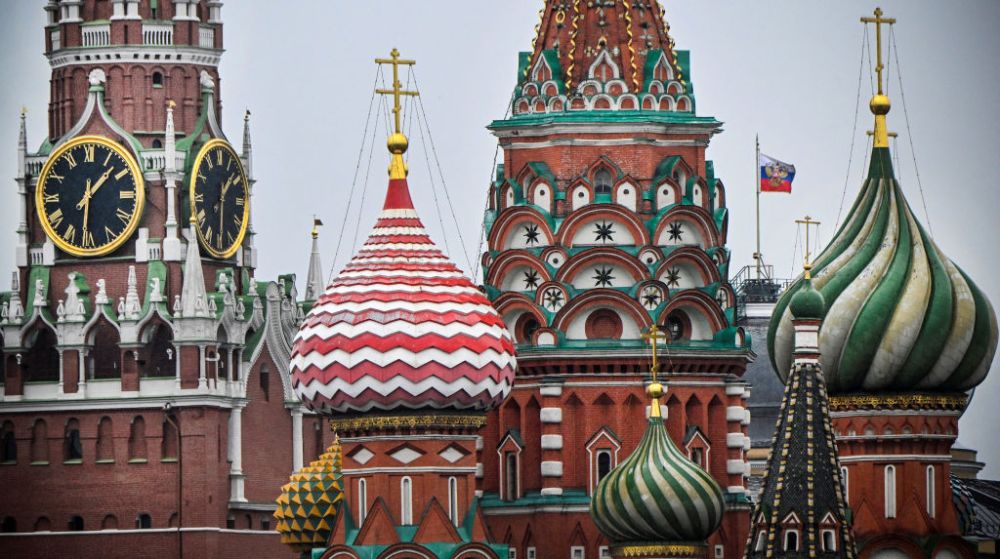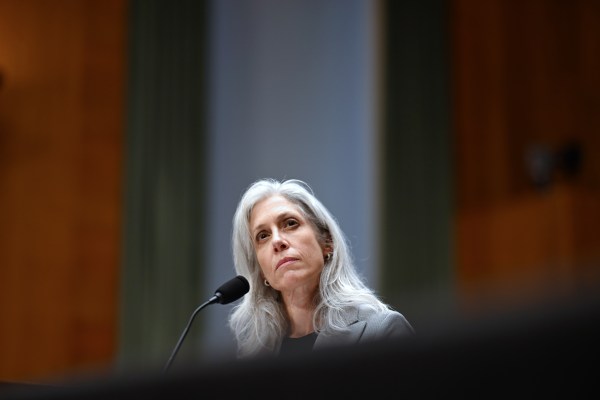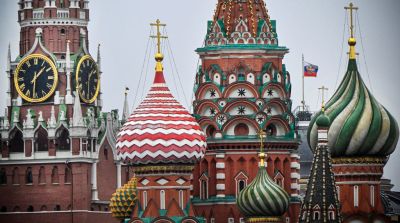Dear Reader (especially the really slow ones),
Russia is a pretty crappy country.
I don’t really like talking that way. But I kind of feel like the moment demands some bluntness.
Before you bring it up, let me concede the most frequent response to my outrageous “Russophobia.” Yes, Russian literature is great. Not to be too reductionist, but near-constant war, lots of political oppression, and brutal winters are great incubators of top-notch novels.
I’ll go further and concede that there’s a lot to Russian culture more broadly that is lovely, interesting, or otherwise admirable. There’s something impressive about Russia’s resilience and creativity in the face of adversity. Nearly every Russian I’ve ever gotten to know has been charming and quite smart. Admittedly, a lot of them have been Russian Jews, and that makes my database more complicated.
(That’s because Russia is arguably the world’s oldest, biggest, and most successful domestic consumer and exporter of antisemitism. From Caterine the Great to Stalin, Russian leaders persecuted, oppressed, scapegoated, and murdered Jews with remarkable regularity. The Protocols of the Elders of Zion was a piece of Russian propaganda and one of the most successful psyops in human history. The forgery was circulated worldwide in scores of languages, influencing everyone from Henry Ford—who had it mass produced for the American audience—to Adolf Hitler, who, well, was literally Hitler. Indeed, in the rich annals of Jews Can’t Catch a Break, czarist antisemitism drove many Russian Jews to become socialists and communists. But most didn’t become Bolsheviks because the party’s atheism was a non-starter for them. Still, some, most famously Leon Trotsky, did become Bolsheviks, and this was enough for antisemites and anti-communists alike to claim that Bolshevism was some kind of Jewish conspiracy. So Jews were hated because they were capitalists except when they were hated for being communists.)
Regardless, when I say that Russia is a crappy country, I don’t mean to say that any individual Russian is a crappy person. North Korea is certainly an awful country, but that doesn’t mean any given North Korean is necessarily a crappy person. The only way in which I will traffic in collective condemnation is to say that sometimes cultural and political dysfunction is an emergent property. Tradition and institutions can be arrayed in such a way that the worst aspects of a culture emerge despite the desires of the citizenry. Abstract condemnation can be justified on the grounds that all those individuals collectively let bad things keep happening.
Maybe this is a good way to illustrate the point: A fraternity can be full of okay dudes, but there’s something about the internal culture of the institution that incentivizes bad outcomes. (I could make a similar argument about both major political parties and many media outlets and platforms. One can say Twitter is awful without implying that everyone on Twitter is awful, too.)
Okay, enough with the caveats and ass-covering in anticipation of all the “How dare yous!?”
An all-czar cast.
Let’s start with the fact that Russian culture is authoritarian. Ruled by emperors and conquerors for 99 percent of its history, Russia’s democratic and liberal traditions have always been noble but precarious niche obsessions. There was a brief experiment with something you might call constitutional monarchy after 1905, when Nicholas II created the first State Duma. And in February 1917, Russians gave Western-style democracy a whirl. That ended the following October. That’s it. From 882 to 1991, Russia’s democratic experiments lasted either 12 years (1905 to 1917) or nine months. Not a lot of muscle memory there.
I will leave it to others to decide how democratic or liberal Russia has been since 1991. But I think it’s fair to say that any society that is decidedly and consistently nostalgic for Joseph Stalin does not cherish democracy or liberalism. And any government plagued by dissenters suddenly auto-defenestrating is doing something wrong.
Of course, one could offer the defense that Russians have been force-fed propaganda about Stalin for generations. Again, that might be a defense of individual Russians, but it’s not a point against my claim that Russia is crappy. On the list of craptacular things to do, telling people to revere a genocidal murderer is pretty high on the list. Particularly when the guy pushing the cult of Stalin is also a would-be genocidal murderer.
Moreover, Russian autocracy and absolutism were different. For understandable reasons, Westerners tend to assume that feudal Russia operated like feudal Europe generally. Obviously, there are similarities—wars with swords and stuff—but there are important differences. These differences are hugely relevant to Russia’s political tradition and culture.
For instance, in Russia the czar owned the country. Literally it was all his land, and the nobles were, in effect, subcontractors whose loyalty was to the czar not to their subjects. In The Story of Russia, Orlando Figes writes:
Other elements of Ivan’s state-building were taken from the Mongols, however. There was nothing like them in the West. European visitors to Moscow were astounded by the extent of the tsar’s power over his subjects, including the nobility. ‘All the people consider themselves to be the slaves of their Tsar,’ remarked Herberstein, who thought that ‘in the sway which he holds over his people, he surpasses the monarchs of the whole world’. Ivan referred to his servitors as ‘slaves’ (kholopy). Protocol required every boyar, even members of the princely clans, to refer to themselves as ‘your slave’ when addressing him—a ritual reminiscent of the servility displayed by the Mongols to their khans. This subservience was fundamental to the patrimonial autocracy that distinguished Russia from the European monarchies. The concept of the state was embodied in the tsar as sovereign or lord of all the Russian lands. The system placed his servitors at his mercy. If they displeased him, he could take away their land. They had no rights of property to protect them from their sovereign.
Russia’s tradition of political authoritarianism is inseparable from Russia’s tradition of religious authoritarianism. Figes again:
The dual nature of the Christian ruler—fallible in his humanity but divine in his princely functions—was a common notion in Europe. The tension it created in the monarch’s image was resolved in western Europe by distinguishing between the mortal person and the sacred office of the king. This distinction would allow the concept of an abstract state to develop in the West as a counterbalance to the king. But that did not happen in Russia, where tsar and state were considered one—united in the body of a single mortal being, who as man and ruler was an instrument of God.
You could argue that the separation of church and state begins with Jesus’ injunction to “render unto Caesar the things which are Caesar’s.” But that idea didn’t really start to emerge on the ground in the West until the fall of the Roman Empire—in the West. Remember, in the East, the Roman Empire hung around for a long time, more on that in a second. In the West, religious authority stayed in Rome, but political authority was seized by kings across the former empire.
The Byzantine Empire (i.e., the Eastern Roman Empire), despite being Christian, didn’t put a lot of stock in Jesus’ “render unto Caesar” stuff. The Byzantines were champions of Caesaropapism, a terrific word for the terrible idea that the religious and secular authority should be inseparable.
Ivan the Terrible invented the claim that he was the rightful heir to the Byzantine Empire and subordinated the church to his rule. When Phillip II, the Metropolitan of Moscow, resisted Ivan’s claims of religious supremacy—and denounced Ivan’s various slaughters —Ivan accused him of sorcery and other crimes and had him put in prison. When that didn’t make him more pliant, Ivan had Phillip smothered in his prison cell.
Today, the leader of the Russian Orthodox Church—in Russia—is a corrupt grotesquerie, entirely loyal to Putin and wholly supportive of the war. Of course, the history of the church during the Soviet era is complicated. But it’s worth remembering that Bolsheviks crushed the church, literally blowing up and ransacking churches, cathedrals, and monasteries and murdering clergy. But in 1943, Stalin needed religion to fight “the Great Patriotic War for Mother Russia.” So he revived the church as a pliant institution of the state. That tradition is alive and well.
Integralist Russia.
Now, I know that there are a lot of integralists and nationalists who think Russia’s merger of church and state is the bee’s knees. I think this is un-American claptrap. Suffice it to say, “But integralism is awesome!” or “You don’t understand, nationalism is the real conservatism!” is not going to change my mind about the crappiness of Russia.
But let’s take the idea seriously for as long as I can stomach it.
Russia’s nationalism, integralism, and anti-wokeness haven’t served it well. It’s got the highest abortion rate in the world. It has the third-highest divorce rate. It has the second worst official rate of alcoholism in the world. Victor Orban’s supposedly super-terrific Hungary is number 1. Russia has massive water pollution problems.
The political climate is a horror show, which is why hundreds of thousands of Russians have fled the country since the start of the war. The media is an Orwellian clown show, with nightly programs celebrating war crimes and calling for even greater war crimes. The free press is largely in exile. Indeed, it’s amazing how the people most hysterical about government censorship of social media—real and imagined—don’t care about the Russian police state. It’s almost as if they’re telling on themselves: Government control is awesome if you imagine that you’ll be the one in control.
Russia loves it some industrial policy. It’s more naked in its approach, simply rewarding cronies rather than bothering with a lot of gibberish about Keynesian multipliers and America First supply chain management. How’s that going for Russia? With 100 million more people, gobs of oil and minerals, and over 62 times more landmass, it has half the GDP of woke California. The average resident of Mississippi—our poorest state—is four times richer than the average Russian.
I don’t want to get too distracted by the stupidity of political opportunists pretending that Russia is some kind of role model for America. But I do think it’s worth observing that Russia’s experience demonstrates how post-liberalism’s lionization of pre-liberal societies is a dead end.
Which brings me back to my point. Liberalism’s emergence from pre-liberalism in the West owes a lot to religion, but religion alone was insufficient. The key was the diffusion of power and the inability of the integralists of their age to consolidate power. The nobles in the West were rival spheres of power, to each other and the king. The Magna Carta wasn’t signed to put England on the path of democracy and liberalism. It was signed by rival parties—warlords really—who weren’t powerful enough to crush one another.
More broadly, the first shoots of liberalism after the Treaty of Westphalia were the result of exhaustion with bloodshed over matters of faith. All of these different nations, crammed cheek-by-jowl in Western Europe, provided all sorts of space for experimentation, competition, and overlapping zones of jurisdiction and regulation. Over time, liberalism yielded tangible improvements that other nations found it necessary to emulate or fall behind. Russia missed out on a lot of that, because Russia’s Westernizers never won the argument.
Russian culture isn’t just authoritarian, it’s imperialist. Henry Kissinger once quipped that, “Since Peter the Great, Russia had been expanding at the rate of one Belgium per year.” I don’t know if that’s literally true. But in The Story of Russia, Figes observes that, “Between 1500 and the revolution of 1917, the Russian Empire grew at an astonishing rate, 130 square kilometres on average every day.”
There are a lot of explanations—but few excuses—for Russian imperialism. Founded by Vikings and occupied by Mongols, it didn’t get off to the best start. Geography is a big part of it. Having vast territory with few natural defenses, Russia always felt threatened at its borders. As a result, Russians always felt they had to conquer their neighbors to create buffer zones to protect the homeland. The problem was that every time they conquered a country, they claimed that country was part of Russia too, meaning there’s always another threat “at the border” in need of conquering. Because Russia was always a multiethnic empire, there was always a huge emphasis on linguistic arguments. If you spoke Russian, you were part of Russia. But again, one of the first things the Russians do is suppress non-Russian languages and move Russian speakers into conquered territories. It’s all very Borg-like.
Whatever your explanation for the why of Russian imperialism, it seems irrefutable that this salvific imperialism is central to Russia’s self-conception.
One piece of evidence for this: The Russian imperium didn’t stop expanding under the Soviets. Prior to its collapse, the Soviet Union was 8,650,000 square miles. Russia today is 6.6 million square miles. Those missing 2 million square miles? That’s Belarus, Estonia, Latvia, Lithuania,, Georgia,,, Moldova, Azerbaijan, Armenia, Tajikstan, Turkmenistan, Kazakhstan, Uzbekistan,And that doesn’t include the countries the Soviet Union invaded but pulled out of earlier—from parts of Austria to Afghanistan or all of those “independent” Warsaw Pact countries that got invaded every time they tried to leave.
Oh, I left out one country. You may have heard of it: Ukraine.
The Ukrainian cause.
Ukraine doesn’t want to be Russian, in part because it doesn’t want to be part of Russia’s long tradition of crappiness anymore. (it still has anti-corruption work to do in that regard.). Vladimir Putin doesn’t care—and neither do his fans and apologists. They all talk about Russia’s historic claims to this and that. They prattle on about how we all need to understand Russia’s perspective. Russian imperialism has a long tradition of existence, and so their paranoia and butchery needs to be respected.
I agree it needs to be understood, and even “respected” in the realpolitik sense of being taken seriously. I respect China’s desire to absorb Taiwan, I respect a mugger’s desire to take my money, and I respect the desire of grizzly bears to eat my face. That doesn’t mean I have to comply, never mind excuse any of that.
I’m reminded of the British Gen. Charles James Napier. While serving in British-controlled India, he was told that he couldn't ban the practice of widow burning. He was advised that it was an ancient and valued tradition in India. He replied that he understood and appreciated that. And then he said, “Be it so. This burning of widows is your custom; prepare the funeral pile. But my nation has also a custom. When men burn women alive we hang them, and confiscate all their property. My carpenters shall therefore erect gibbets on which to hang all concerned when the widow is consumed. Let us all act according to national customs.”
It’s not a perfect anecdote for my purposes—British imperialism and all that. But it does get to my contempt for most defenses of Russia. I don’t give a rat’s ass that Russia feels entitled to invade and slaughter people (that it claims are actually Russians).
Cornel West, who is running for president, said recently, “Let us not be deceived: NATO is an expanding instrument of U.S. global power that provoked Russia into a criminal invasion and occupation of Ukraine. This proxy war between the American Empire and the Russian Federation could lead to World War III.”
This is asinine. You know what all the members of NATO have in common—other than being non-crappy and democratic? They asked to be part of NATO. And, unlike Russia’s vassal holdings, today or in centuries past, they can leave anytime they want. But West calls us the “American Empire” while describing an imperialist invader the “Russian Federation.” That’s shameful garbage.
We can argue about what the right policies and strategies should be. You can roll your eyes at talk about good guys and bad guys, because that’s supposedly the kind thing foreign policy sophisticates like Andrew Tate and Tucker Carlson think is stupid. But the simple truth is Russia is the bad guy here. And Ukraine isn’t—and neither are we.
Various & Sundry
Canine update: So we got Gracie a little castle because, you know, she’s a queen. But she found it unsatisfactory. She likes that Louis XIV style. So the Fair Jessica put it out on the front porch, and Chester immediately took up residence in it. Our neighbor is fine with it, she says we’re “co-parenting now.” I had a couple dozen Dispatch-ers at Chez JG last night for a party. It was a lot of fun, and the animals were very pleased with the attention they received. Pippa told many people she loved them. At any given moment there might have been three or four people paying tribute to this or that quadruped. The only problem is that it was such a late night, and so much food found its way into canine receptacles, that Pippa’s hangover was almost as bad as mine this morning. She insisted on going out very early—too much rich food if you know what I mean—but upon return she went back to bed. So Zoë and Gracie got their treats without her. Zoë’s back to deer chasing, even though one ungulate didn’t live up to its end of the bargain until Pippa joined in. The heat requires early morning adventure and sometimes results in wet dog problems. And even some film noir moments.
ICYMI
I recorded the solo Remnant this morning pretty hungover, so you might check out my appearance on the Reason podcast instead.
I also did a panel on Paul Cantor and popular culture you might like. Or you might not.
And now the weird stuff







Please note that we at The Dispatch hold ourselves, our work, and our commenters to a higher standard than other places on the internet. We welcome comments that foster genuine debate or discussion—including comments critical of us or our work—but responses that include ad hominem attacks on fellow Dispatch members or are intended to stoke fear and anger may be moderated.
With your membership, you only have the ability to comment on The Morning Dispatch articles. Consider upgrading to join the conversation everywhere.